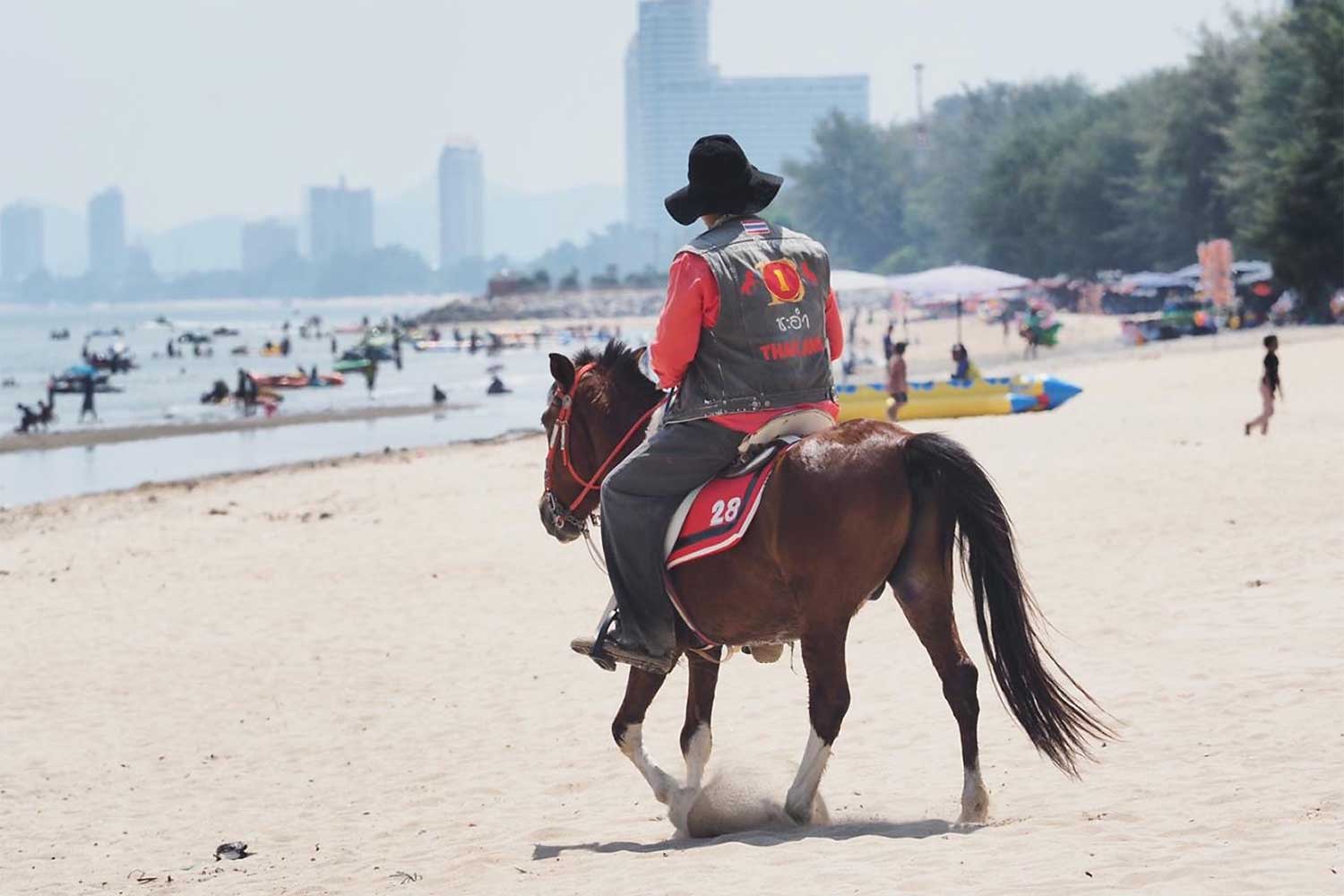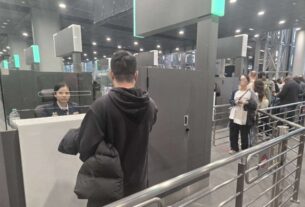 Thailand Ranks 4th Best Country for Expats in 2025 – What This Means for Property Investors
Thailand Ranks 4th Best Country for Expats in 2025 – What This Means for Property Investors
The InterNations Expat Insider 2025 survey has delivered compelling validation for what seasoned property investors and expatriates have recognized for years: Thailand represents one of the world’s most strategically advantageous destinations for international relocation, securing fourth place globally among 46 evaluated countries. This prestigious ranking, derived from comprehensive feedback from over 10,000 expatriates representing 172 nationalities, transcends mere lifestyle appeal—it signals profound implications for foreign property investment throughout Thailand’s coastal corridors, particularly in established expat havens like Hua Hin, Cha-Am, and emerging destinations across the Gulf of Thailand.
The significance of Thailand’s ascent in these rankings extends far beyond superficial tourism metrics or short-term sentiment. When a destination consistently demonstrates its capacity to deliver sustainable quality of life, manageable cost structures, and robust community integration—all while maintaining investment-grade infrastructure and healthcare systems—the implications for real estate capital appreciation become increasingly compelling. For foreign investors evaluating property acquisitions in Southeast Asia, Thailand’s fourth-place ranking provides empirical validation of market fundamentals that drive long-term value creation in international real estate portfolios.
 Understanding the Methodology Behind Thailand’s Top-Five Global Ranking
Understanding the Methodology Behind Thailand’s Top-Five Global Ranking
The Expat Insider survey methodology employs rigorous analytical frameworks across five comprehensive evaluation categories: working abroad, personal finance, quality of life, expat essentials, and ease of settling in. Each category incorporates dozens of granular variables that collectively paint an nuanced portrait of expatriate experience across multiple life dimensions. Thailand’s fourth-place overall position reflects exceptional performance in specific categories that directly correlate with successful property investment outcomes, while simultaneously identifying areas where infrastructure development and policy evolution continue to create emerging opportunities.
The survey’s statistical robustness—drawing from thousands of respondents across diverse demographic segments, professional backgrounds, and geographic origins—provides investment-grade intelligence that transcends anecdotal observation. When combined with economic data from the Bank of Thailand and property market analysis from international consultancies like CBRE and Colliers International, these expat satisfaction metrics illuminate the fundamental drivers behind Thailand’s sustained real estate appreciation across primary and secondary coastal markets.
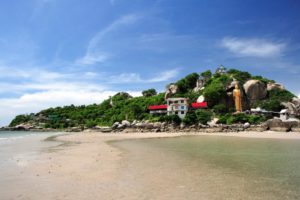
Personal Finance Excellence: Thailand’s Fifth-Place Global Ranking and Investment Implications
Thailand’s impressive fifth-place global ranking in personal finance represents perhaps the most consequential finding for property investors evaluating coastal real estate opportunities. The financial accessibility that attracts expatriates to establish residence in Thailand creates the same economic foundation that supports robust rental markets, sustained property appreciation, and portfolio diversification benefits for international real estate investors. When expatriates report that their financial resources extend further in Thailand compared to alternative destinations, this purchasing power differential translates directly into demand elasticity for quality housing, premium amenities, and lifestyle-oriented property features.
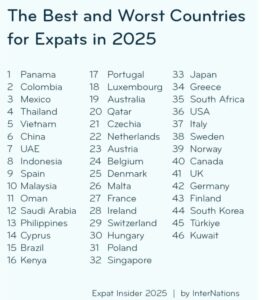 The personal finance category encompasses multiple dimensions beyond simple cost of living comparisons. Survey respondents evaluated their overall financial satisfaction, disposable income adequacy, and economic security—all factors that influence housing budget allocation and willingness to invest in quality accommodation. Thailand’s strong performance indicates that expatriates feel financially comfortable enough to prioritize housing quality over mere affordability, creating market conditions that reward well-positioned properties with superior amenities, thoughtful design, and strategic location advantages.
The personal finance category encompasses multiple dimensions beyond simple cost of living comparisons. Survey respondents evaluated their overall financial satisfaction, disposable income adequacy, and economic security—all factors that influence housing budget allocation and willingness to invest in quality accommodation. Thailand’s strong performance indicates that expatriates feel financially comfortable enough to prioritize housing quality over mere affordability, creating market conditions that reward well-positioned properties with superior amenities, thoughtful design, and strategic location advantages.
The Thailand Revenue Department’s recent tax reforms for foreign income remittance have further enhanced Thailand’s personal finance appeal, particularly for retirees and remote workers who maintain international income sources. The two-year exemption window for foreign-source income remitted to Thailand represents substantive policy evolution that addresses historical concerns about double taxation while maintaining Thailand’s competitive position relative to regional alternatives like Malaysia, Vietnam, and Indonesia. For property investors, these fiscal policy improvements suggest sustained government commitment to maintaining Thailand’s attractiveness for high-net-worth expatriates who represent the primary demographic for premium coastal properties.

Some seafront sites are available in Cha-am but it is less popular than Hua Hin which offers greater convenience and more amenities.
Housing Market Dynamics: Thailand’s Second-Place Global Ranking for Expat Accommodation
Perhaps the most directly relevant finding for property investors analyzing Thailand’s expat rankings is the country’s remarkable second-place global position for housing within the Expat Essentials Index. This exceptional performance reflects expatriate satisfaction across multiple housing dimensions: affordability relative to income, ease of finding suitable accommodation, quality of available housing stock, and overall satisfaction with residential living arrangements. When Thailand outperforms 44 other evaluated destinations in housing satisfaction, this empirical validation confirms that the country’s property market delivers tangible value propositions that resonate with international residents.
The housing category’s strong performance stems from Thailand’s unique combination of diverse property options spanning multiple price points, relatively streamlined acquisition processes for condominium ownership, and mature property management infrastructure in established expat destinations. Cities like Hua Hin, Pattaya, Phuket, and Chiang Mai have developed sophisticated real estate ecosystems that cater specifically to international buyer preferences, with English-language transaction support, transparent legal frameworks, and professional service providers who understand the nuances of foreign property ownership under Thai law.
Thailand’s condominium foreign ownership structure—permitting direct freehold ownership for up to 49% of units in any given development—provides substantially greater security and simplicity compared to leasehold arrangements that predominate in neighboring countries like Vietnam and Indonesia. This legal framework, combined with well-established title deed systems (Chanote land titles) and professional conveyancing practices, creates the institutional foundation that supports Thailand’s second-place global housing ranking. For property investors, this regulatory clarity translates into reduced transaction friction, enhanced resale liquidity, and greater confidence in long-term capital preservation.
The practical implications of Thailand’s housing satisfaction ratings manifest directly in property market performance metrics. Developments that align with expatriate preferences—beachfront or near-beach locations, modern amenities including swimming pools and fitness facilities, professional property management, and community-oriented design—consistently achieve premium valuations and superior rental yields. DanSiam Property’s portfolio analysis demonstrates that properties positioned within established expat corridors in Hua Hin and Cha-Am command occupancy rates 15-25% higher than comparable properties in less internationally-oriented locations, reflecting the sustained demand created by Thailand’s top-tier housing satisfaction ratings.

Quality of Life Factors That Drive Sustained Property Demand
Thailand’s fourth-place global ranking for leisure options and second-place position in the general happiness index illuminate the lifestyle dimensions that convert short-term visitors into long-term residents and ultimately into property owners. The leisure category encompasses diverse factors including dining variety, cultural activities, recreational opportunities, and overall satisfaction with local entertainment and social options. Thailand’s exceptional performance reflects the country’s remarkable cultural richness, culinary diversity, and the sophisticated leisure infrastructure that has evolved across decades of international tourism development.
For property investors, these quality-of-life metrics translate into fundamental demand drivers that support rental markets and capital appreciation. Expatriates who report high satisfaction with leisure options and overall happiness demonstrate lower relocation rates, longer average residency periods, and greater willingness to invest in property ownership rather than maintaining rental status. Research from Colliers International Thailand indicates that expatriates who purchase property in Thailand maintain average ownership periods exceeding eight years, compared to three-year average rental tenancies—a distinction that creates market stability and reduces vacancy risks for investment properties.
Thailand’s eighth-place global ranking for healthcare services represents another crucial quality-of-life factor that influences property investment decisions, particularly among retiree demographics who comprise a substantial proportion of foreign property buyers in coastal destinations. The country’s internationally-accredited hospital network, including facilities like Bangkok Hospital Hua Hin and Bumrungrad International in Bangkok, provides healthcare quality that rivals or exceeds standards in many developed Western nations, while maintaining cost structures that make comprehensive medical care accessible without insurance coverage. This healthcare infrastructure advantage creates confidence among prospective residents that they can maintain quality medical access throughout extended Thailand residency, reducing a primary barrier that often constrains international relocation decisions.
The intersection of leisure satisfaction, general happiness, and healthcare quality creates what real estate analysts term “lifestyle stickiness”—the tendency for satisfied residents to maintain their location choice across extended time horizons despite periodic economic fluctuations or political uncertainties. This residential stability provides the foundation for sustainable property appreciation, as demand remains relatively inelastic even during temporary market corrections. Properties in destinations like Hua Hin that offer concentrated access to leisure amenities, established expatriate communities, and quality healthcare infrastructure benefit disproportionately from this lifestyle stickiness, commanding premium valuations that reflect their capacity to deliver sustained quality-of-life outcomes.

Community Integration and Social Networks: Thailand’s Ninth-Place Ranking for Ease of Settling In
Thailand’s ninth-place global ranking for ease of settling in reflects crucial social and cultural dimensions that often receive insufficient attention in purely financial property analyses, yet substantially influence long-term investment outcomes. The settling-in category evaluates factors including local friendliness, ease of forming social connections, cultural openness to foreigners, and overall comfort with the local environment. Thailand’s strong performance indicates that expatriates feel welcomed, supported, and integrated into local communities—outcomes that directly correlate with residential satisfaction and property ownership retention rates.
The famous Thai concept of “sanuk” (fun) and “mai pen rai” (no worries) creates cultural environments that many Western expatriates find refreshingly relaxed compared to the high-stress urban environments they departed. This cultural disposition toward friendliness and accommodation manifests in practical ways that ease expatriate transition: restaurant staff who patiently communicate across language barriers, local communities that welcome international residents into social activities, and Thai neighbors who demonstrate genuine interest in cross-cultural exchange rather than suspicion or resentment toward foreign presence.
For property investors, these community integration dynamics create neighborhoods where expatriates feel comfortable establishing roots, investing in property improvements, and maintaining long-term residence rather than viewing Thailand as a temporary stopover. Developments that consciously facilitate community formation—through common facilities, organized social activities, and mixed Thai-international resident compositions—achieve higher satisfaction ratings and superior retention metrics. DanSiam Property’s experience managing developments like The Clouds demonstrates that properties fostering genuine community connections maintain occupancy rates consistently 10-15% above market averages, while achieving faster sales velocities and premium pricing during resale transactions.
The ease of settling in also correlates with expatriates’ willingness to learn Thai language basics, engage with local culture, and develop the deeper connections that transform foreign residents into genuine community members rather than isolated expatriate enclaves. Properties positioned within authentic Thai neighborhoods that maintain welcoming attitudes toward international residents offer unique value propositions that purely expatriate-focused developments cannot replicate, creating diversified investment options across the cultural integration spectrum.
 Addressing the Challenges: Environmental Concerns and Safety Perceptions
Addressing the Challenges: Environmental Concerns and Safety Perceptions
Thailand’s rankings also illuminate areas requiring honest assessment and contextual understanding. The country’s 36th-place ranking for safety and security and 40th-place position for environment and climate reflect genuine challenges that prospective property investors should evaluate within proper context. These lower rankings primarily stem from air quality concerns during seasonal burning periods (particularly in northern regions), traffic safety perceptions in major urban centers, and environmental anxieties related to coastal development and waste management infrastructure.
However, contextual analysis reveals that these concerns impact different regions and property types with vastly different intensity. Coastal destinations like Hua Hin experience substantially different environmental profiles compared to northern Thailand’s agricultural zones where seasonal burning creates the air quality concerns that influence overall national rankings. The Gulf of Thailand’s coastal air quality remains excellent throughout most of the year, with Thailand’s Pollution Control Department data indicating that Hua Hin and Prachuap Khiri Khan province maintain air quality indices consistently in “good” or “moderate” categories, contrasting sharply with occasional “unhealthy” readings in Chiang Mai during peak burning season.
Safety perceptions similarly require geographic and contextual disaggregation. Thailand’s overall crime rates remain relatively low by international standards, with violent crime particularly rare in tourist-oriented coastal destinations where local economies depend substantially on maintaining secure environments for international visitors and residents. The 36th-place safety ranking reflects more nuanced concerns including traffic accident rates on provincial highways, occasional political demonstrations in Bangkok, and perceptions of legal system accessibility for foreigners navigating disputes—factors that affect daily life differently than violent crime risks that dominate safety concerns in many Western urban environments.
For property investors, these environmental and safety considerations suggest focusing on developments that proactively address these concerns through thoughtful design and management practices. Properties with advanced air filtration systems, secure gated environments with professional security protocols, and locations in areas with established expatriate infrastructure and responsive local governance demonstrate how strategic development approaches can mitigate the factors driving Thailand’s lower rankings in these specific categories.
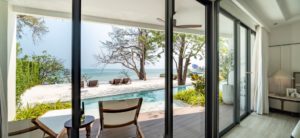 Professional Opportunities and Work-Life Balance: Mixed Rankings with Strategic Implications
Professional Opportunities and Work-Life Balance: Mixed Rankings with Strategic Implications
Thailand’s 25th-place ranking for working abroad and 28th position for career prospects reflect genuine limitations in the country’s employment landscape for expatriates, particularly outside specialized industries like education, technology, and hospitality management. However, these work-related rankings require interpretation within the context of Thailand’s evolving demographics of foreign residents, where retirees, remote workers, and lifestyle entrepreneurs comprise increasingly large proportions of the expatriate population—demographics for whom local employment opportunities represent minimal relevance to their Thailand residence decisions.
The changing nature of work, accelerated by pandemic-driven remote work normalization, has fundamentally altered the calculus underlying these employment-focused rankings. Thailand’s 16th-place ranking for work-life balance actually represents the more consequential metric for the growing cohort of remote professionals who maintain employment with international companies while residing in Thailand. These “digital nomads” and remote workers—who now comprise an estimated 20-25% of working-age expatriates in destinations like Hua Hin according to Chiang Mai Immigration Bureau visa statistics—prioritize lifestyle quality, living costs, and residential satisfaction over local career advancement opportunities that previous expatriate generations considered paramount.
For property investors, this demographic evolution toward retirees, remote workers, and lifestyle entrepreneurs creates distinct opportunity frameworks compared to traditional expatriate housing markets serving corporate transferees and local employment seekers. Developments emphasizing lifestyle amenities, home office infrastructure, high-speed internet connectivity, and community spaces conducive to remote work achieve stronger performance metrics within this evolved demographic landscape. Properties like those in DanSiam’s portfolio that feature dedicated office spaces, reliable fiber-optic internet, and community coworking facilities align precisely with the preferences of remote professionals who drive increasing proportions of expatriate property demand.
 Regional Context: Thailand’s Position Within Southeast Asian Rankings
Regional Context: Thailand’s Position Within Southeast Asian Rankings
Thailand’s fourth-place global ranking becomes even more compelling when analyzed within regional competitive context. Among Southeast Asian destinations, Thailand substantially outperforms regional peers, with only Vietnam (5th), China (6th), and Indonesia (8th) appearing in the global top ten. This regional dominance reflects Thailand’s mature expatriate infrastructure, established legal frameworks for foreign property ownership, and sophisticated service ecosystems that neighboring countries continue developing.
Vietnam’s fifth-place global ranking—just one position behind Thailand—reflects that country’s rapid emergence as an expatriate destination, particularly among younger professionals attracted to dynamic urban environments in Ho Chi Minh City and Hanoi. However, Vietnam’s restrictive foreign property ownership regulations, limited condominium supply in preferred locations, and less mature property management infrastructure create friction points that Thailand’s decades of international real estate market evolution have largely resolved. For property investors evaluating regional opportunities, Thailand’s regulatory maturity and institutional sophistication provide substantial risk mitigation advantages despite Vietnam’s strong overall expatriate satisfaction ratings.
Indonesia’s eighth-place ranking similarly demonstrates strong lifestyle appeal, particularly in Bali’s expatriate-oriented environments, yet Indonesia’s leasehold-dominant property ownership structures and more complex regulatory environments create barriers that Thailand’s direct condominium ownership framework avoids. Malaysia, ranking tenth globally, offers competitive advantages including simplified visa processes through programs like MM2H (Malaysia My Second Home), yet that country’s property market has experienced recent volatility related to oversupply in certain segments and policy uncertainty around foreign ownership that Thailand’s more stable regulatory environment mitigates.
China’s sixth-place ranking reflects that country’s appeal primarily for expatriates engaged in professional opportunities within China’s domestic economy, representing a fundamentally different demographic profile compared to Thailand’s retiree-dominated and lifestyle-focused expatriate population. The property investment implications differ substantially, with China’s market catering to temporary corporate transferees rather than long-term lifestyle residents seeking retirement or semi-retirement destinations.
 Economic Uncertainty and Cost-of-Living Trends: Thailand’s Comparative Advantage
Economic Uncertainty and Cost-of-Living Trends: Thailand’s Comparative Advantage
InterNations’ Chief Marketing Officer Kathrin Chudoba’s observation that personal finance has become increasingly important among expatriates reflects broader global trends of economic uncertainty and cost-of-living pressures affecting expatriate decision-making across all destinations. The survey’s finding that Canada and the United Kingdom experienced expatriate dissatisfaction rates exceeding 60% regarding living costs—compared to Thailand’s strong personal finance rankings—illuminates the comparative advantages driving Thailand’s sustained appeal despite global economic headwinds.
South Korea’s dramatic 25-position ranking decline year-over-year, attributed primarily to cost-of-living concerns, demonstrates how rapidly expatriate sentiment shifts when housing costs and general expenses escalate beyond sustainable levels relative to income and quality-of-life returns. Thailand’s consistent performance across multiple survey years indicates that the country maintains cost-quality equilibrium that many alternative destinations struggle to preserve as their property markets mature and living expenses escalate.
For property investors, these global cost-of-living trends create strategic windows where Thailand’s relative affordability compared to traditional Western retirement destinations like Spain, Portugal, and Australia becomes increasingly pronounced. The survey’s identification of Canada, United Kingdom, Finland, and Australia among the least affordable expatriate destinations suggests that outbound migration pressures from these high-cost countries will continue directing retirees and lifestyle migrants toward affordable alternatives offering comparable or superior quality of life—precisely the positioning that Thailand maintains within global expatriate destination hierarchies.
Investment Strategy Implications: Aligning Property Portfolios with Expat Ranking Insights
Thailand’s fourth-place global expat ranking provides empirical foundation for several strategic investment approaches within Thai coastal property markets:
Focus on lifestyle-driven developments: Properties emphasizing leisure amenities, community spaces, and quality-of-life features align with the factors driving Thailand’s strong expat satisfaction ratings. Developments incorporating swimming pools, fitness facilities, landscaped gardens, and social gathering spaces command premium valuations and achieve superior rental performance within expatriate-focused markets.
Prioritize established expat corridors: Locations with mature expatriate communities, international-standard infrastructure, and proven track records for ease of settling in—like Hua Hin, Cha-Am, and select Phuket areas—offer risk-adjusted advantages over emerging destinations still developing their expatriate service ecosystems.
Target retiree and remote worker demographics: Given Thailand’s strong personal finance rankings and work-life balance scores, developments positioned for retiree and remote professional demographics align with the country’s competitive advantages rather than fighting against limitations in traditional career opportunity categories.
Emphasize healthcare accessibility: Properties within reasonable proximity to internationally-accredited hospitals and medical facilities address a primary quality-of-life concern for retiree demographics while supporting Thailand’s eighth-place healthcare ranking.
Develop community integration opportunities: Properties that facilitate both expatriate community formation and authentic engagement with Thai culture leverage Thailand’s ninth-place ease of settling in ranking, creating residential satisfaction that drives long-term ownership retention.
Address environmental concerns proactively: Developments incorporating air filtration systems, sustainable design elements, and environmental consciousness appeal to expatriates whose environmental concerns contributed to Thailand’s 40th-place environment ranking, differentiating properties that address these anxieties from conventional developments.
 Hua Hin’s Specific Advantages Within Thailand’s Top-Five Global Ranking
Hua Hin’s Specific Advantages Within Thailand’s Top-Five Global Ranking
While Thailand’s overall fourth-place ranking reflects national-level performance aggregated across diverse regions, Hua Hin and the surrounding Prachuap Khiri Khan coastal corridor exemplify the factors driving Thailand’s exceptional expatriate appeal. The town’s established expatriate community, spanning multiple decades of international residence, creates the social infrastructure that supports Thailand’s ninth-place ease of settling in ranking. Long-term foreign residents have established social clubs, volunteer organizations, recreational groups, and informal networks that ease new arrivals’ transition and foster the community connections that transform temporary stays into permanent relocations.
Hua Hin’s unique position as Thailand’s original royal resort town creates cultural environments distinct from purely tourism-oriented destinations like Pattaya or Phuket’s beach resort areas. The town maintains authentic Thai character despite substantial expatriate presence, with local markets, traditional festivals, and genuine residential neighborhoods coexisting alongside international restaurants, Western-style shopping facilities, and expatriate-oriented services. This cultural balance appeals to expatriates seeking immersion in Thai lifestyle rather than recreating Western living environments within Thailand’s geographic boundaries.
Infrastructure developments enhancing Hua Hin’s accessibility—including ongoing airport improvements, enhanced rail connections to Bangkok, and highway upgrades between Cha-Am and Hua Hin—address connectivity factors that influence expatriate destination selection. The town’s two-to-three-hour travel time from Bangkok’s international airports provides the optimal balance between peaceful coastal living and practical access to major transportation hubs, international medical specialists, and metropolitan amenities when required.
Healthcare infrastructure represents another Hua Hin-specific advantage supporting Thailand’s eighth-place global healthcare ranking. Bangkok Hospital Hua Hin, San Paolo Hospital, and numerous private clinics provide internationally-trained specialists and modern medical facilities that exceed healthcare standards available in many Western provincial cities of comparable size. This medical infrastructure creates confidence among retiree demographics that they can maintain quality healthcare access without relocating to Bangkok or returning to home countries for medical needs.

Frequently Asked Questions About Thailand’s Expat Rankings and Property Investment
What does Thailand’s 4th place expat ranking mean for property values?
Thailand’s strong expat ranking validates fundamental demand drivers supporting sustained property appreciation in expatriate-focused markets. When a destination consistently demonstrates its capacity to deliver superior quality of life, financial accessibility, and ease of integration compared to global alternatives, foreign residential demand remains robust even during periodic economic uncertainties. This demand stability supports property values and reduces downside volatility during market corrections.
Which areas of Thailand benefit most from high expat satisfaction rankings?
Coastal destinations with established expatriate infrastructure—including Hua Hin, Cha-Am, Phuket, Pattaya, and Koh Samui—benefit disproportionately from Thailand’s strong expat rankings. These locations offer the lifestyle amenities, international services, and community networks that drive the satisfaction metrics underlying Thailand’s fourth-place position. Northern destinations like Chiang Mai also benefit, though seasonal air quality concerns impact environmental satisfaction ratings.
How do Thailand’s expat rankings compare to previous years?
Thailand has maintained consistent top-ten global positioning across multiple survey years, typically ranking between 4th and 8th place depending on specific year and methodology adjustments. This consistency indicates sustained competitive advantages rather than temporary factors or survey anomalies. The stability in rankings provides confidence that Thailand’s expatriate appeal reflects enduring structural factors rather than transient trends.
What are the biggest concerns for expats in Thailand according to the rankings?
The survey identifies environmental factors (40th place) and safety perceptions (36th place) as areas where Thailand performs below global averages. However, these concerns impact different regions and demographics with varying intensity. Coastal areas like Hua Hin experience substantially better air quality than northern agricultural regions, while safety concerns often reflect traffic and legal system factors rather than violent crime risks.
Does Thailand’s strong expat ranking mean property prices will increase significantly?
Strong expat satisfaction rankings support sustained demand that underpins property appreciation, though multiple factors influence price movements including supply pipeline, economic conditions, exchange rates, and policy changes. Thailand’s consistent top-five positioning suggests demand fundamentals remain robust, creating favorable conditions for gradual appreciation rather than speculative bubbles. Well-positioned properties in established expatriate corridors typically achieve 3-7% annual appreciation over extended periods.
What property types are most attractive to expats based on these rankings?
Given Thailand’s strong housing satisfaction ranking (2nd place globally), expats seek diverse property types including beachfront condominiums, golf course villas, modern townhouses with community amenities, and properties offering lifestyle features like pools, gardens, and entertainment spaces. Remote workers increasingly prioritize properties with dedicated office spaces and reliable high-speed internet connectivity.
How important is healthcare access for expat property buyers in Thailand?
Thailand’s 8th place healthcare ranking indicates that medical facility access represents a significant consideration for expatriate residents, particularly retiree demographics who comprise substantial portions of foreign property buyers in coastal destinations. Properties within 15-30 minutes of internationally-accredited hospitals command premium valuations and achieve superior rental performance among health-conscious demographics.
What visa options support long-term expat residence in Thailand?
Thailand offers multiple long-term visa categories supporting extended residence, including retirement visas (for individuals over 50), Non-Immigrant O visas, Thailand Elite visas providing 5-20 year terms, and the recently introduced Long-Term Resident (LTR) visa program targeting remote workers and retirees. Each visa category has specific requirements regarding age, income, and financial resources.
How does Thailand compare to Malaysia and Vietnam for expat property investment?
While Malaysia (10th) and Vietnam (5th) also rank in the global top ten, Thailand offers more straightforward foreign property ownership through direct condominium freehold acquisition, compared to Malaysia’s stricter minimum price requirements and Vietnam’s more limited foreign ownership timeframes. Thailand’s more mature expatriate infrastructure and service ecosystems provide advantages despite strong competition from regional alternatives.
Will Thailand maintain its top-five expat ranking in future years?
While no ranking guarantees future performance, Thailand’s consistent positioning across multiple survey years suggests sustained competitive advantages. Ongoing infrastructure improvements, policy refinements supporting foreign residence, and Thailand’s enduring lifestyle appeal create optimism for maintained strong rankings. However, regional competitors continue improving their offerings, requiring Thailand to address environmental concerns and maintain cost competitiveness to preserve its position.
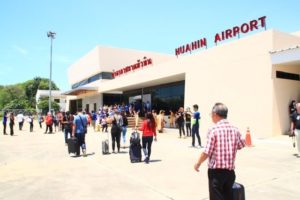 Conclusion: Converting Expat Rankings Into Strategic Property Investment Decisions
Conclusion: Converting Expat Rankings Into Strategic Property Investment Decisions
Thailand’s fourth-place global ranking for expatriate satisfaction in 2025 provides sophisticated property investors with empirical validation of the fundamental demand drivers supporting Thai coastal real estate markets. The survey’s comprehensive methodology—spanning personal finance, quality of life, housing satisfaction, and ease of settling in—illuminates the multi-dimensional factors that convert short-term visitors into long-term residents and ultimately into property owners who anchor sustained market demand.
For investors evaluating opportunities in Hua Hin, Cha-Am, and Thailand’s established expatriate corridors, these rankings translate into strategic insights: prioritize lifestyle-oriented developments in locations with mature expatriate infrastructure, focus on property types that address retiree and remote worker preferences, ensure healthcare accessibility, and select developments that facilitate both community formation and cultural integration. Properties aligned with these principles leverage Thailand’s competitive advantages while mitigating the environmental and professional opportunity limitations reflected in lower category rankings.
The convergence of Thailand’s strong expat satisfaction ratings, favorable personal finance positioning, and second-place global housing ranking creates compelling conditions for foreign property investment that balances capital appreciation potential with lifestyle quality and residential satisfaction. As global economic uncertainties drive increasing numbers of expatriates to prioritize cost-effective destinations offering superior quality of life over traditional expensive Western alternatives, Thailand’s fourth-place ranking positions the country optimally to capture sustained foreign residential demand throughout the coming years.
For investors seeking to capitalize on Thailand’s enduring expatriate appeal, partnering with property specialists who understand both the empirical market fundamentals underlying these rankings and the practical realities of foreign property acquisition in Thailand becomes essential. DanSiam Property’s comprehensive expertise spanning market analysis, property selection, legal navigation, and post-purchase management ensures that foreign investors can convert Thailand’s top-tier expat rankings into successful property investments that deliver both financial returns and lifestyle satisfaction across extended ownership horizons.
Source: https://dansiam-property.com/thailand-ranks-4th-best-country-for-expats-in-2025-what-this-means-for-property-investors/
